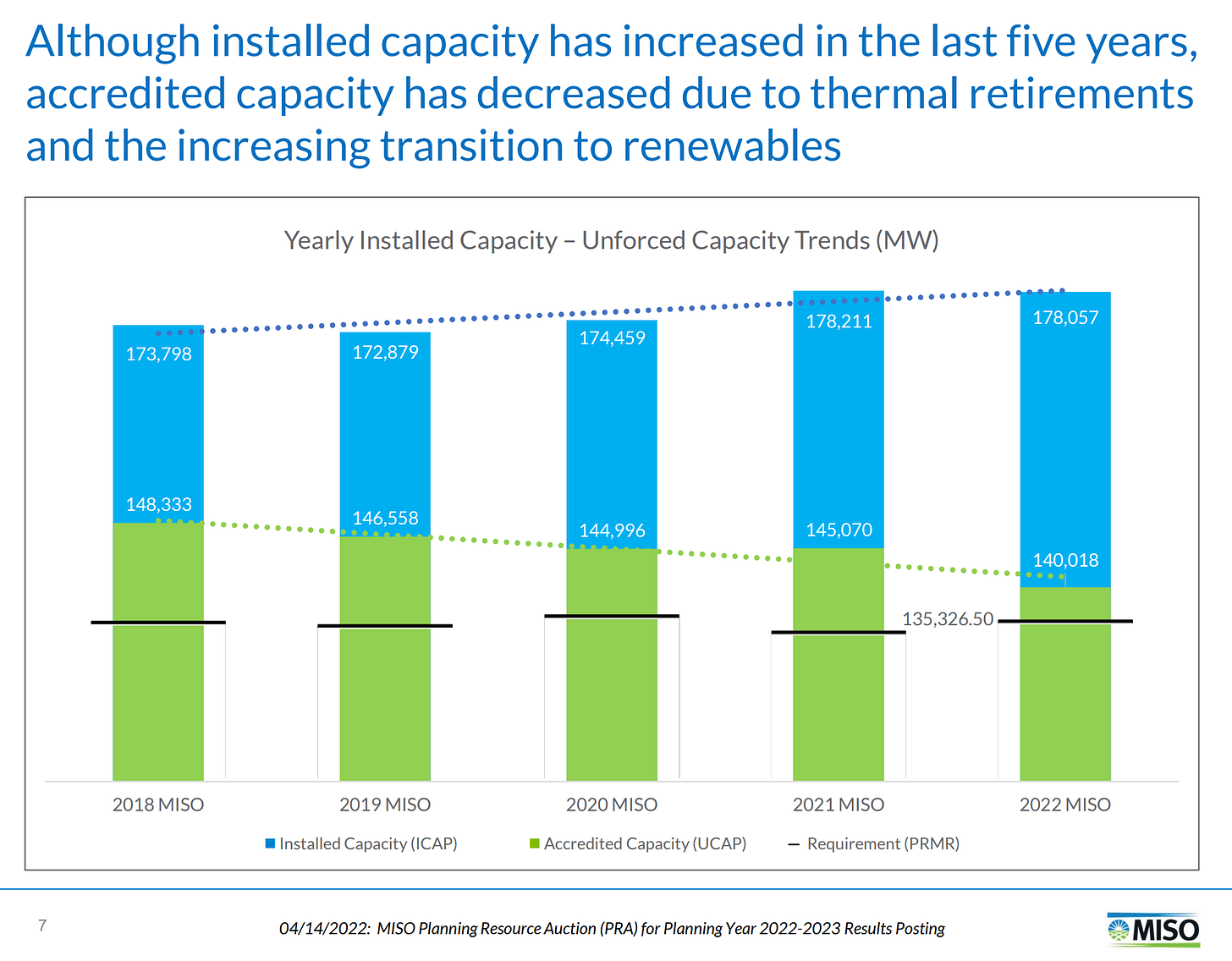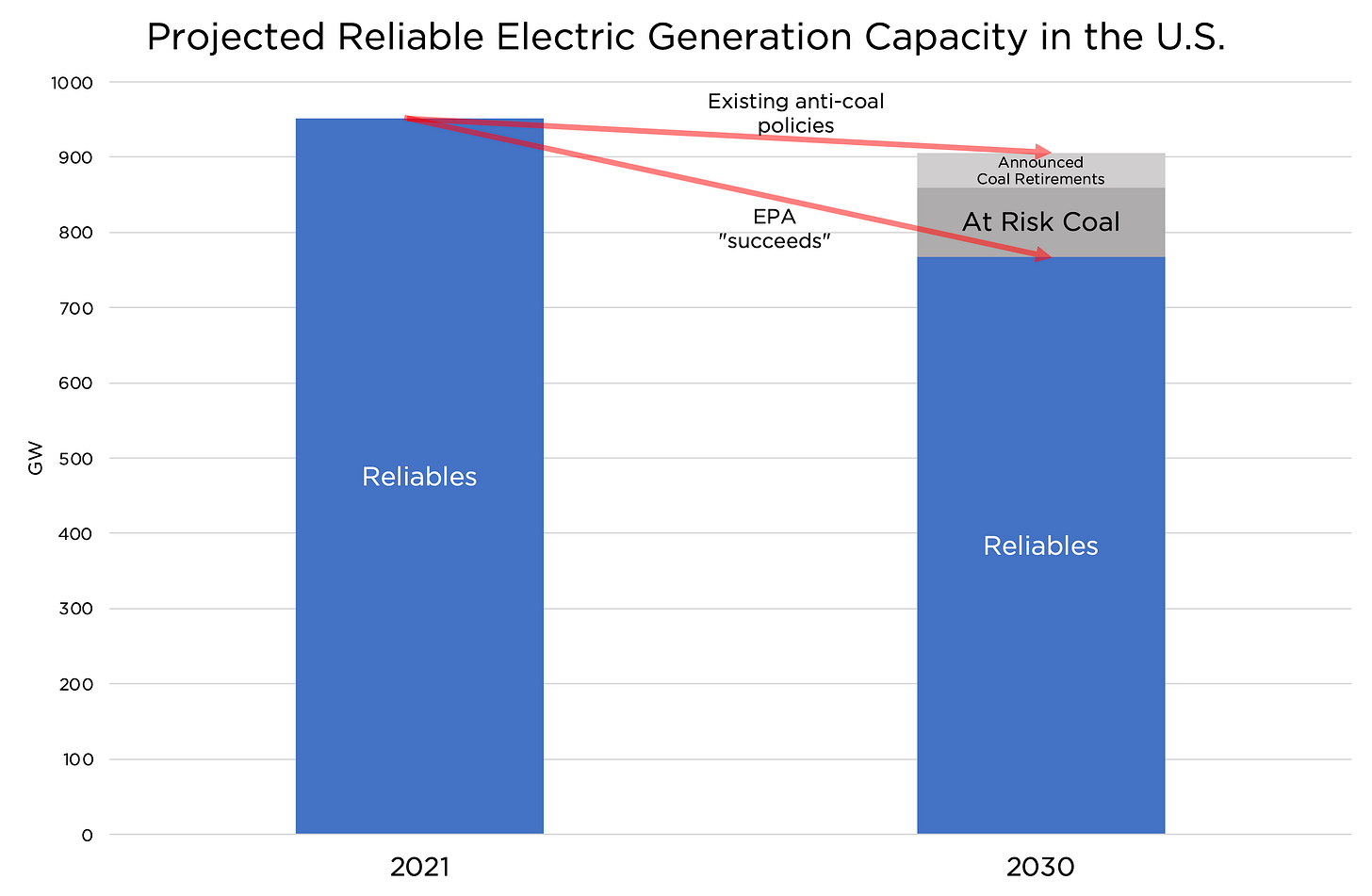4 energy hearings the House should hold
Republicans are promising a pro-energy agenda. Here are 4 essential topics they should take up.
Republicans are promising a pro-energy agenda.
Here are 4 essential topics they should take up:
1. Nuclear overregulation
2. Unreliable electricity
3. Lessons of Europe’s energy crisis
4. The “Inflation Reduction Act” disaster
Essential hearing 1: How to Decriminalize Nuclear and Unleash its Full Potential
This hearing would discuss the stalled potential of nuclear energy, what has caused it, and how to fix it.
It could be held by the: House Committee on Ways and Means, House Committee on Energy and Commerce, House Committee on Oversight and Reform, House Committee on Transportation and Infrastructure.Fact: Nuclear energy has limitless potential. It is the cleanest and safest form of energy ever devised. And nuclear had a proven track record of being able to provide low-cost, ultra-reliable electricity before hostile government policies made it near impossible.
Fact: The cost-effectiveness of nuclear energy has tragically declined. The time to create a new plant has increased from 4 years to several times that when it should have decreased due to improving technology. And prices have increased many times when they should have decreased.1
Fact: Neither new subsidies nor new government-funded research will solve the fundamental problem with nuclear: overregulation that amounts to criminalization. We need radical nuclear policy reform.
Key nuclear reforms: Banish the pseudoscientific “linear no threshold” model from public agencies; Combine construction and operating licensing into a single process with a maximum of 2 years; Eliminate involvement of anti-development activists in the nuclear permitting process.
Another key reform: Congress should seriously consider removing nuclear energy regulation from the Federal government and leaving it to the states.
Essential hearing 2: Electricity Emergency—How Shutdowns of Reliable Power Plants Threaten to Bring About a Third World Grid
This hearing would discuss the accelerating decline of reliable electricity, its causes, and solutions.
It could be held by: House Committee on Ways and Means, House Committee on Energy and Commerce, House Committee on Oversight and Reform, House Committee on Natural ResourcesFact: Grid operators around the country are warning us that we are retiring too many reliable power plants. MISO—the Midcontinent Independent System Operator—recently documented a decline in “accredited capacity” “due to thermal retirements” and increasing solar and wind.2
Fact: Nationally, as demand has increased over the last 10 years we have seen a decline in reliable capacity (gas, coal, oil, nuclear, hydro) by 5%.3
Fact: The next 7 years are scheduled to be a bloodbath of reliable capacity retirements. There are 93 GW of announced coal plant retirements, plus up to 92 more GW are at risk retiring early due to new Environmental Protection Agency rules. That's almost ⅕ of our already-scarce reliable capacity shut down.4
The EPA’s proposed rules are an existential threat to our grid and should be an early target of House oversight so that these disastrous rules can be exposed to the light of day and prevented from coming into existence.
Fact: Since at any given time solar and wind can go near zero, using them as replacements for reliable power plants doesn’t work. For example, Texas’ February 2021 disaster was caused by solar and wind disappearing and inadequate investment in reliable power plants and their weatherization.5
Fact: Batteries will not make unreliable solar and wind reliable! Battery storage is expensive and can only provide a given “capacity” (e.g., 1 GW) for a few hours, and only then if fully charged. Planned batteries are nowhere near enough to compensate for solar and wind's unreliability.
Reforms: The 3 basic policy changes needed to end the electricity emergency are 1) stop rewarding unreliable electricity, 2) stop Environmental Protection Agency policies that prematurely shut down coal plants, 3) stop forcing electric vehicle use.6
Essential hearing 3: The Lessons of Europe’s Energy Crisis
This hearing would discuss what we can learn from Europe’s energy crisis, their dependence on Russia, and how to avoid the same mistakes. It could be held by: House Committee on Natural Resources, House Committee on Foreign Affairs, House Committee on Ways and Means, House Committee on Energy and Commerce, House Committee on Oversight and Reform, House Committee on Financial Services.Fact: Europe has extreme dependence on Russian natural gas because Europe has foolishly restricted fossil fuel and nuclear energy production on the false promise that unreliable solar and wind could replace it.7
Fact: Europe’s vulnerability to Russia was completely preventable. Europe and its allies have all the natural gas, coal, and uranium they need for low-cost, reliable heat and electricity for generations to come. But anti-fossil fuel, anti-nuclear policies have neutered Europe.8
The #1 lesson of Europe’s natural gas dependence is this: European governments have wildly overestimated the ability of solar and wind to provide the energy they need and wildly underestimated the need for fossil fuels and nuclear to provide the energy they need.
Fact: America is even more dependent on China for many of the key components of solar panels, wind turbines, and batteries than Europe is on Russia for natural gas.9
Reforms: To avoid a Europe-style fate, or worse, the US needs to 1) Liberate responsible development; 2) Stop its attack on our grid’s reliability; 3) change its emissions strategy to long-term reduction through liberating innovation (especially nuclear), not punishing America.
Essential hearing 4: The Orwellian “Inflation Reduction Act”: a 4-step recipe to destroy American energy
This hearing would discuss the consequences of the “Inflation Reduction Act” on American energy. It could be held by: House Committee on Ways and Means, House Committee on Energy and Commerce, House Committee on Oversight and Reform, House Committee on Financial Services, House Committee on Natural Resources.The “Inflation Reduction Act” is a 4-step recipe for destroying American energy: 1. Make us more dependent on unreliable electricity. 2. Impose new oil and gas taxes during an energy crisis. 3. Give the Environmental Protection Agency more power to restrict fossil fuels. 4. Give more power to anti-fossil-fuel activists.10
Step 1 of the IRA’s recipe for destroying American energy: Make us more dependent on unreliable electricity by 1) reducing the supply of reliable electricity via solar and wind favoritism and 2) increasing demand for electricity via EV subsidies and other electricity subsidies.
Step 2 of the IRA’s recipe for destroying American energy: Impose new oil and gas taxes during an energy crisis. At a time when we and the world desperately need more oil and gas the IRA imposes 4 new taxes on the oil and gas industry that make production more expensive.
Step 3 of the IRA’s recipe for destroying American energy: Give the Environmental Protection Agency more power to restrict fossil fuels. The EPA’s use/abuse of its existing powers has crippled our grid and handicapped our fossil fuel industry. The Inflation Reduction Act gives the EPA much more dollars and power to do far more damage.
Step 4 of the IRA’s recipe for destroying American energy: Give more power to anti-fossil-fuel activists. “Environmental justice” activists have handicapped US energy, especially crucial infrastructure like pipelines. The Inflation Reduction Act offers billions of dollars for activists to do more damage.
The House hearings on the IRA must not only expose the ruinous components of the IRA but also explore a roadmap for undoing the IRA as soon as possible and replacing it with pro-energy, pro-freedom policies.
Please share this piece with your representatives and encourage them to take action! If they want to contact me directly about these ideas they can reach me at alex at alexepstein dot com.
Popular links
EnergyTalkingPoints.com: Hundreds of concise, powerful, well-referenced talking points on energy, environmental, and climate issues.
My new book Fossil Future: Why Global Human Flourishing Requires More Oil, Coal, and Natural Gas—Not Less.
“Energy Talking Points by Alex Epstein” is my free Substack newsletter designed to give as many people as possible access to concise, powerful, well-referenced talking points on the latest energy, environmental, and climate issues from a pro-human, pro-energy perspective.








Just emailed to my state legislator, thank you!
If we really do wind up shutting down 93GW of reliables over the next 7 years, and demand continues to grow (EV subsidies/mandates probably guarantee demand growth), do we reach the point of routine rolling blackouts? We already have them during extreme cold/heat events, but there is obviously a point where this would become something that happens constantly. Do you think 93GW (combined with demand growth) could be enough? Or will it need more reliables coming offline before this becomes routine?